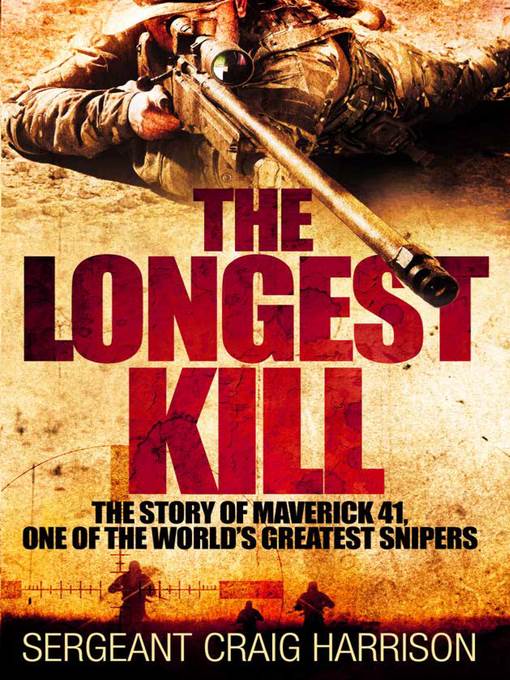
The Longest Kill
The Story of Maverick 41, One of the World's Greatest Snipers
کتاب های مرتبط
- اطلاعات
- نقد و بررسی
- دیدگاه کاربران
نقد و بررسی

December 7, 2015
British sniper Harrison recounts his tours of duty in the Balkans, Iraq, and Afghanistan, addressing his record-breaking kill shot and battle with PTSD, in this breathless memoir. Though fond of target shooting as a youth, Harrison’s love of horses won out when he applied to join the British Army, opting for the cavalry. Much like this book, his career got off to a wobbly start: his temper, affinity for fighting, and penchant for unapproved absences irked his supervising officers. Still, he was dispatched to the Balkans, witnessing his share of carnage before returning home and ending his army career. He rejoined just as Britain invaded Iraq, where his marksmanship skills were greatly needed. Harrison’s narrative starts to flow smoothly as he relates his sniper training and the shock of his first kill. Providing an immersive experience for readers, he recalls with clarity the tension of numerous missions and the toll exacted on the soldiers. In the final chapters, Harrison describes his integration back into society, which was hampered by PTSD, and by the release his personal information to the media by the military—a colossal mistake that left him and his family vulnerable to violent threats. Harrison’s harrowing story should serve as a cautionary tale of the perils soldiers face on the battlefield and at home.

December 1, 2015
Gritty combat memoir by an elite British sniper. Harrison's memoir focuses on the technical aspects of high-level gunfighting, as battle-tested during his multiple tours in Afghanistan and Iraq. He opens with a tense encounter in Afghanistan, setting up the shot that would earn a world record for a long-distance kill, then downshifts into recounting his hardscrabble, dreary childhood. Things pick up for Harrison and readers when he signs on at age 16 with the British Household Cavalry. He learned about the ugly realities of war during a posting in the Balkans, where he bore witness to Serbian war crimes, and then a tour of Iraq that "had come close to breaking me." Instead, in 2006, he pestered his way into sniper school: "I just kept asking--literally for years--until I ground them down." As in the United States, the training is grueling, yet Harrison persevered, winning top student. His new skills served him well in 2007, he notes, when "I was back for another tour in the shithole that was Iraq." Promoted to command after his first Afghanistan tour, the author documents frequent ambushes and grisly combat tableaux in both theaters: "There wasn't much logic or background explained to us. We were like 'rent-a-muscle.' " He notes that a certain coldbloodedness is essential for the sniper: "Due to the magnification of the scope, you do tend to see the person you are about to shoot." Even after being wounded by an IED, Harrison was returned for combat to Afghanistan. He excels at capturing the nitty-gritty of being an operating high-end combat sniper, ably discussing equipment, optics, shooting theory, and stalking tactics. Seeing the Iraq and Afghanistan conflicts through the eyes of a British soldier also helps the book stand out. Otherwise, a sense of the author's inner life does not really develop beyond the laconic conservatism one might expect. Will appeal to fans of unapologetically brutal military writing.
COPYRIGHT(2015) Kirkus Reviews, ALL RIGHTS RESERVED.

November 15, 2015
Despite the title, which refers to a successful shot that measured at 2,475 meters, this autobiography by British soldier Harrison--who was deployed to Bosnia, Iraq, and Afghanistan--covers his early life (brutal), enlistment (rough), deployments (challenging), and marriage (redeeming). Harrison is a foul-mouthed, violent, unapologetic fighter who did his job well and took much pleasure in becoming an expert in his field. While not always gifted with empathy, Harrison nevertheless dwells on the self-destructive intimacy of killing: the sniper must track a target, get a very close look at the person, and see the effect of the bullet splashing brains into the dirt. After Afghanistan, Harrison suffered from post-traumatic stress disorder (PTSD), exacerbated by the army inadvertently releasing his identity to the media, which led to abuse and threats from many sources. His first-person narrative style is littered with profanity and graphic depictions of violent death. VERDICT Harrison presents a different view of military life from American servicemen in similar sniper books. For military buffs, particularly those who read Chris Kyle and Scott McEwen's American Sniper and The Reaper by Nicholas Irving and Gary Brozek.--Edwin Burgess, U.S. Army Combined Arms Research Lib., Fort Leavenworth, KS
Copyright 2015 Library Journal, LLC Used with permission.

























دیدگاه کاربران